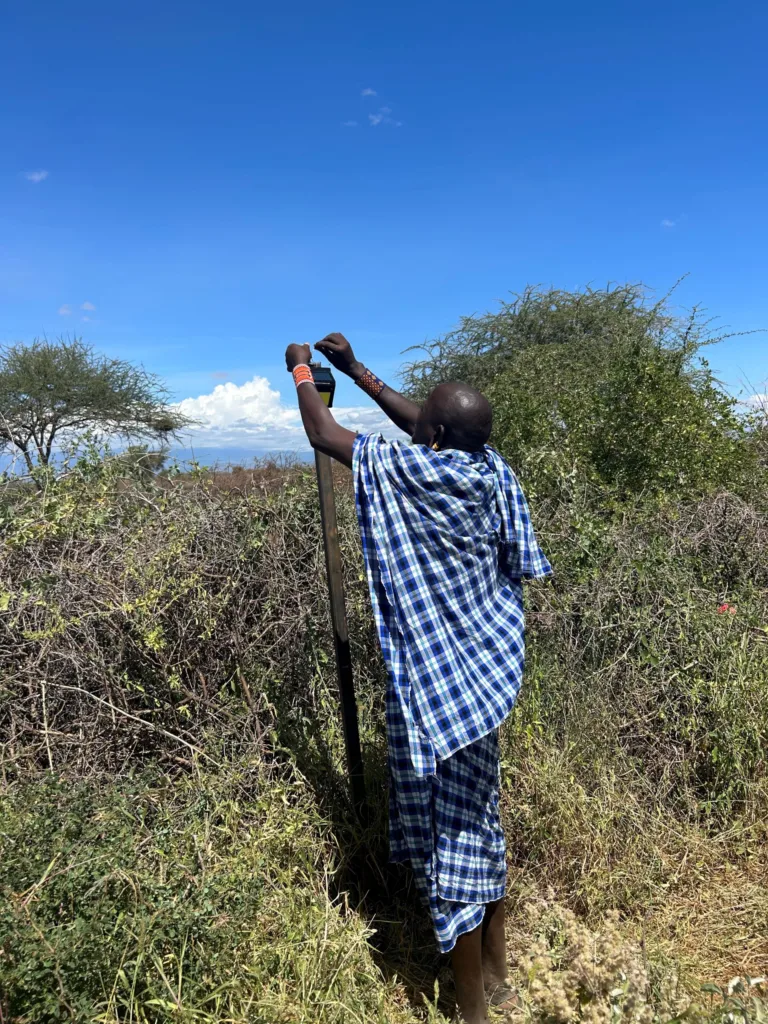Assessing Elephants and Exploring Local Peoples’ Resource Use
Each semester at the SFS Center for Wildlife Management Studies (CWMS) in Tanzania, students go on expedition trips. During expeditions students have a chance to gain field experience on topics that they learn about theoretically at the Center. Recently students went on an expedition trip to the Tarangire area where they conducted various field exercises both in Tarangire National Park and in its adjacent community areas where wildlife disperses, especially during the wet season. Some of the exercises conducted during expedition include an assessment of natural resource use by local people at Mdori Village and an assessment of the status of the elephant population in Tarangire National Park.
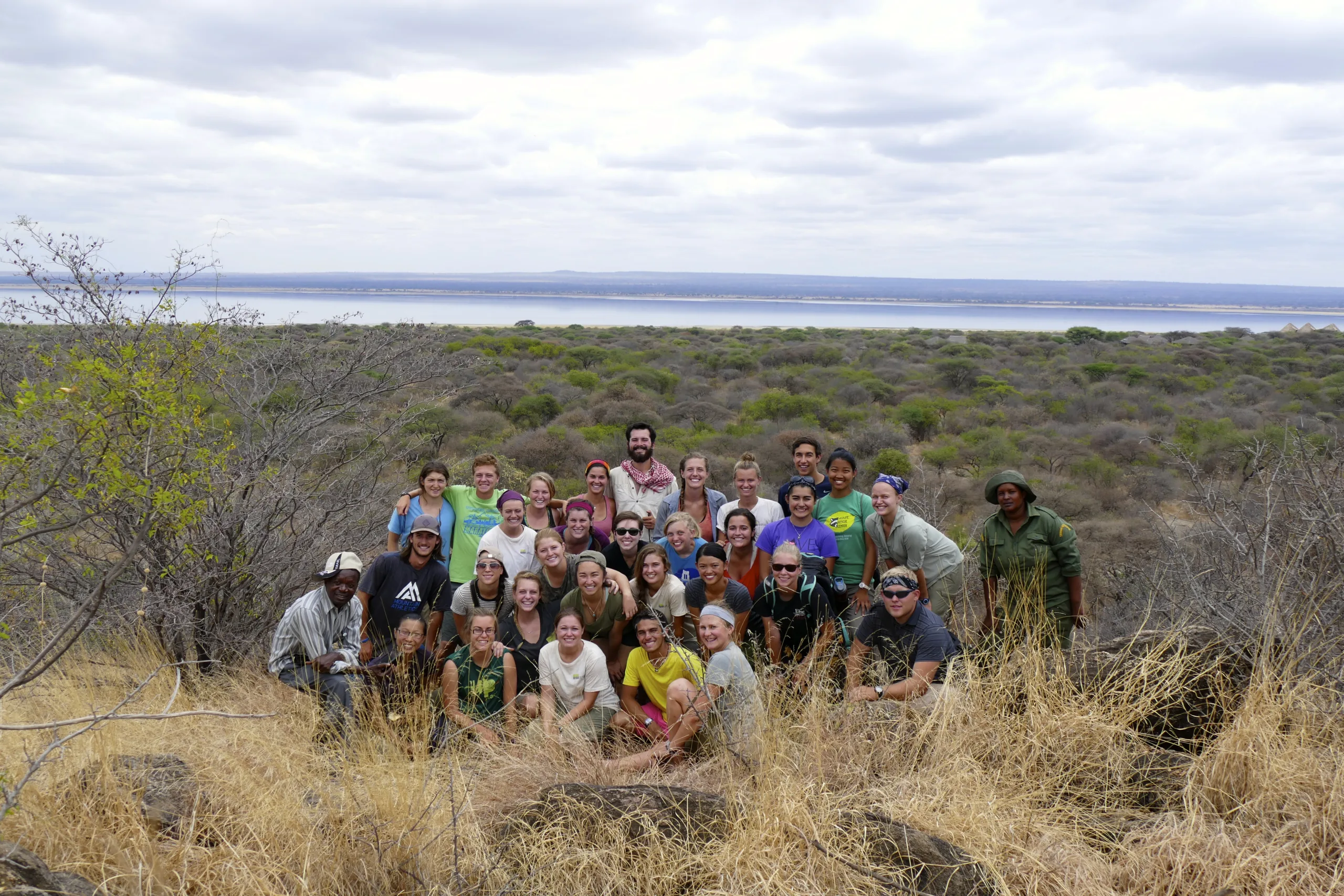
SFS Tanzania students on an expedition to the Tarangire ecosystem. Photo: Olivia Burns
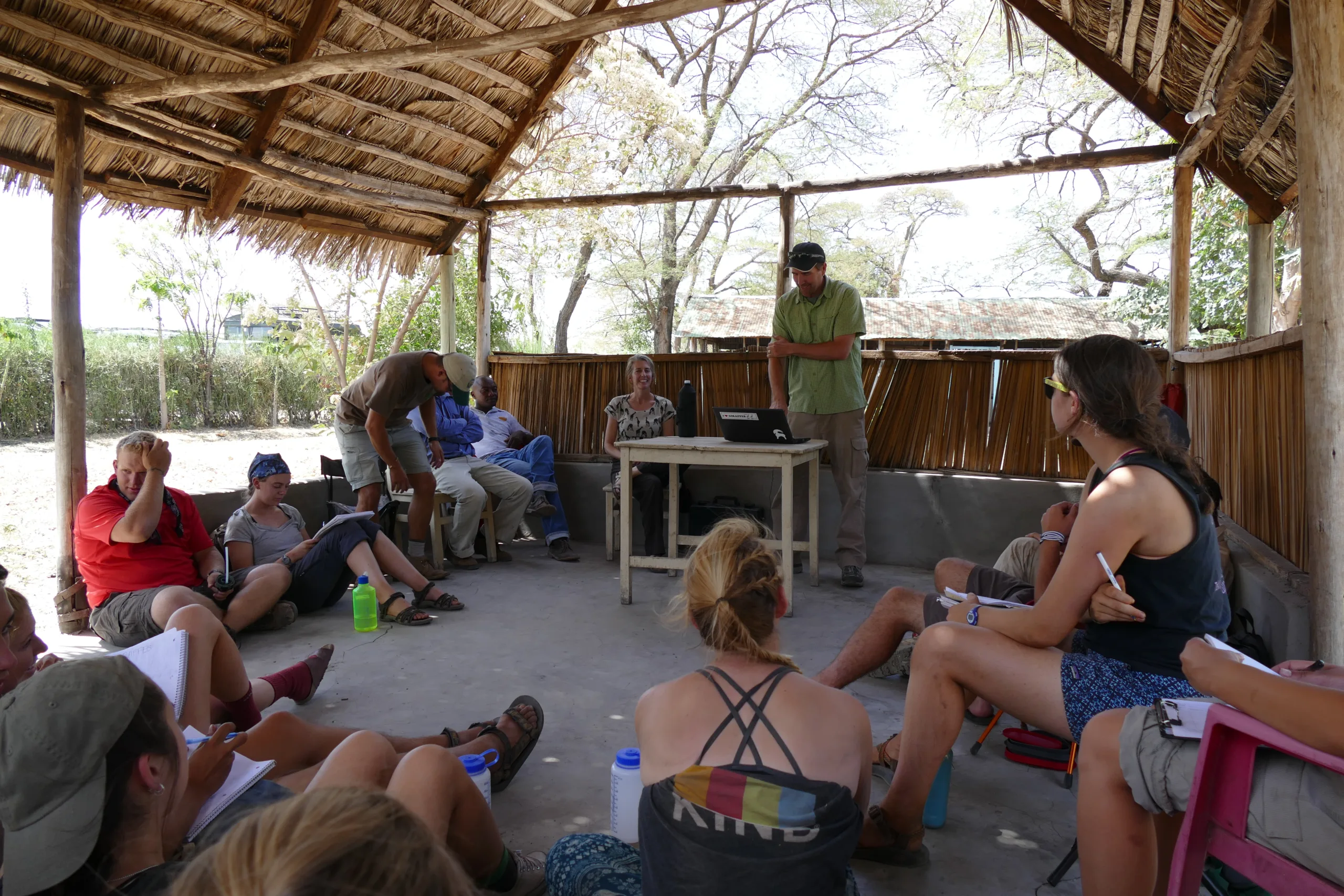
During the expedition the students attended a guest lecture by two giraffe researchers, Derek Lee and Monica Bond. Photo: Olivia Burns
Examining the natural resources use and knowledge of the Mbugwe tribe of Mdori Village was very interesting because it enabled the students to understand the relationships between natural resources and rural livelihoods. The findings will be used to pinpoint conservation strategies that involve the community members themselves in resource conservation. Also the field exercise helped the students gain experience in social survey techniques that they will apply during their Directed Research projects.
Random household interviews were conducted by groups of six students, and each group was accompanied by a local person who acted as their guide and language translator. They collected information on respondent characteristics, firewood species preferences, and other natural resources uses such as medicinal, cultural/ritual, household utensils, foods, construction, beekeeping, etc. It was found that black and white acacia trees are most preferred for firewood because they last a long time when burning, have little smoke, and are abundant. They collect wild fruits from tamarind, baobab and wild palm trees. For construction they use poles from different trees, though in the past the African backwood (ebony tree) was most preferred due to its durability. Unfortunately it has now gone extinct in this area. They eat bush meat from impala, warthogs, zebra, wildebeest, buffalos etc. The local people said that the best way to conserve trees and forests is through educating people on the importance and wise use of trees, as well as intensifying tree planting programs. They also believed that local people themselves should take responsibility for conserving the trees and forests within their areas. The students really enjoyed this exercise because they had the opportunity to visit local peoples’ homes, interact with them, and get first hand information on the local household life.

Photo: Becky Gottlieb
On another day, students cruised around Tarangire National Park conducting an elephant assessment. They collected data on sex, age, body conditions, and activities performed by each observed elephant such as grazing, browsing, playing, wallowing, walking, fighting and so on. When elephants were encountered, students spent at least 20 minutes assessing the group. This exercise was exciting and fun to students because they got to see how elephants behave and interact when they are in groups or families, and also how these largest terrestrial animals use their tough but flexible trunk for multipurpose functions. At the end of the exercise students were very happy because they became competent in identifying elephant sexes based on the shapes of their heads.
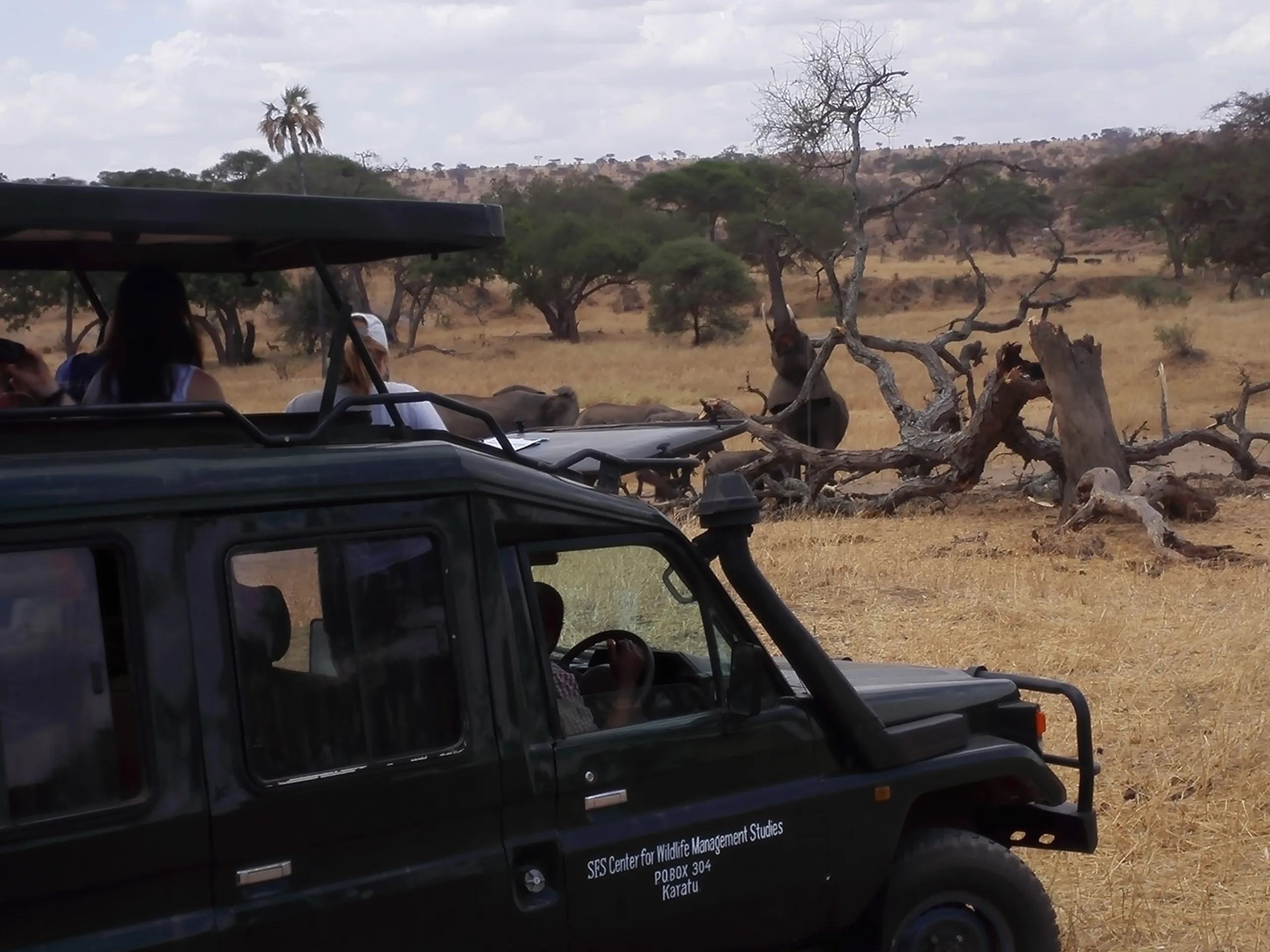
Students studying elephants in Tarangire National Park. Photo: John Mwamhanga
Related Posts
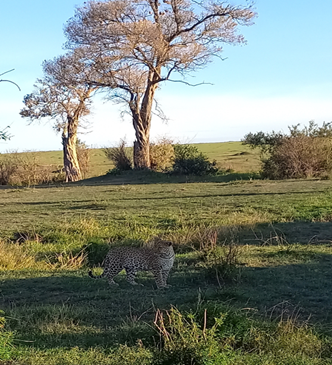
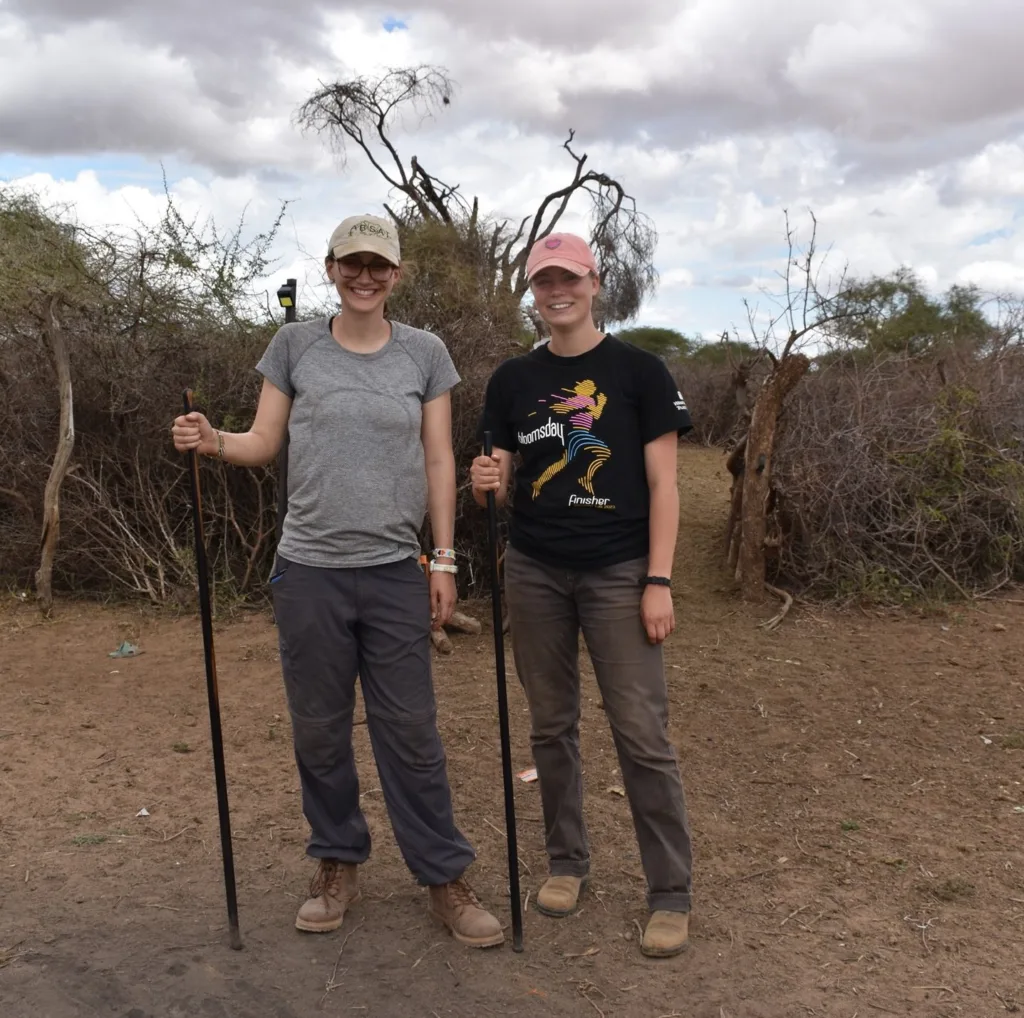
Alumni Reflections: Stories of the Return to Kenya
